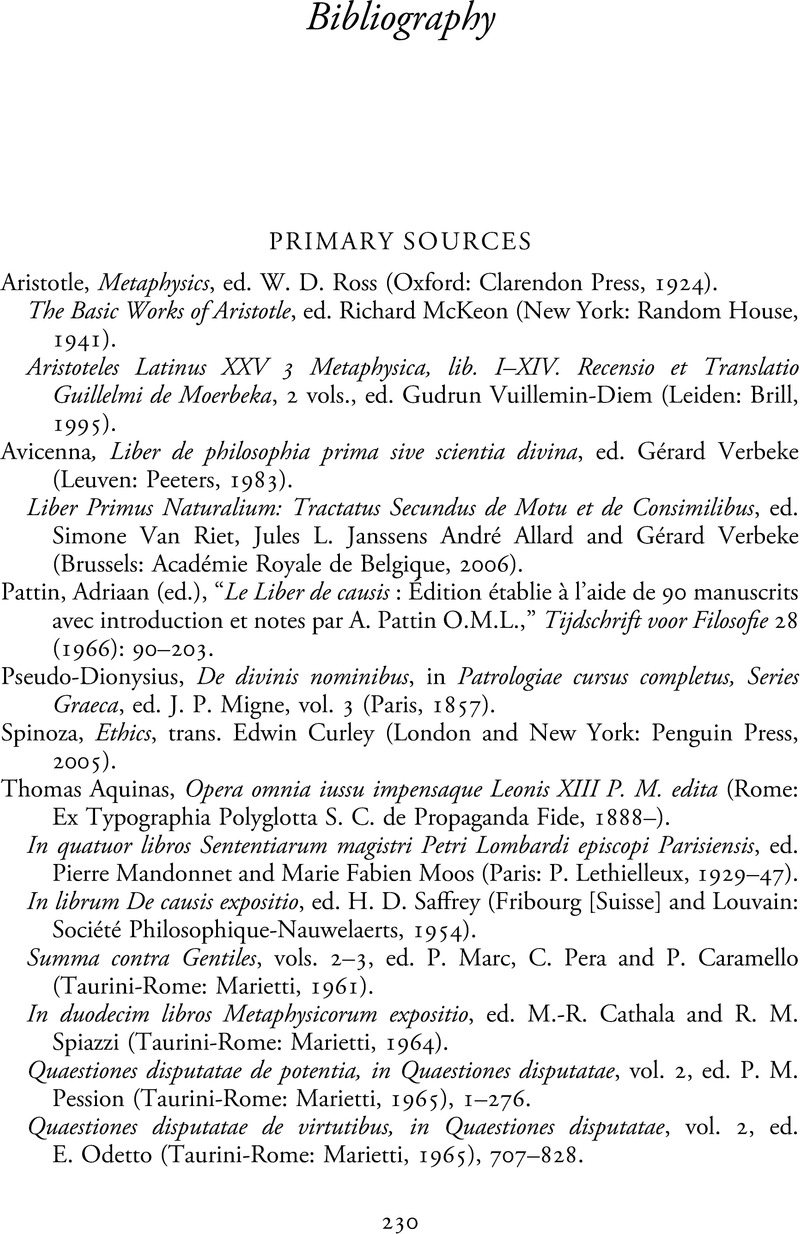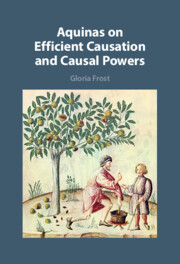Book contents
- Aquinas on Efficient Causation and Causal Powers
- Aquinas on Efficient Causation and Causal Powers
- Copyright page
- Dedication
- Contents
- Acknowledgments
- Abbreviations for Aquinas’s Works
- Introduction
- Part I The Elements of Paradigm Instances of Efficient Causation
- Part II Complications
- Bibliography
- Index
- References
Bibliography
Published online by Cambridge University Press: 11 November 2022
- Aquinas on Efficient Causation and Causal Powers
- Aquinas on Efficient Causation and Causal Powers
- Copyright page
- Dedication
- Contents
- Acknowledgments
- Abbreviations for Aquinas’s Works
- Introduction
- Part I The Elements of Paradigm Instances of Efficient Causation
- Part II Complications
- Bibliography
- Index
- References
Summary

- Type
- Chapter
- Information
- Aquinas on Efficient Causation and Causal Powers , pp. 230 - 237Publisher: Cambridge University PressPrint publication year: 2022



